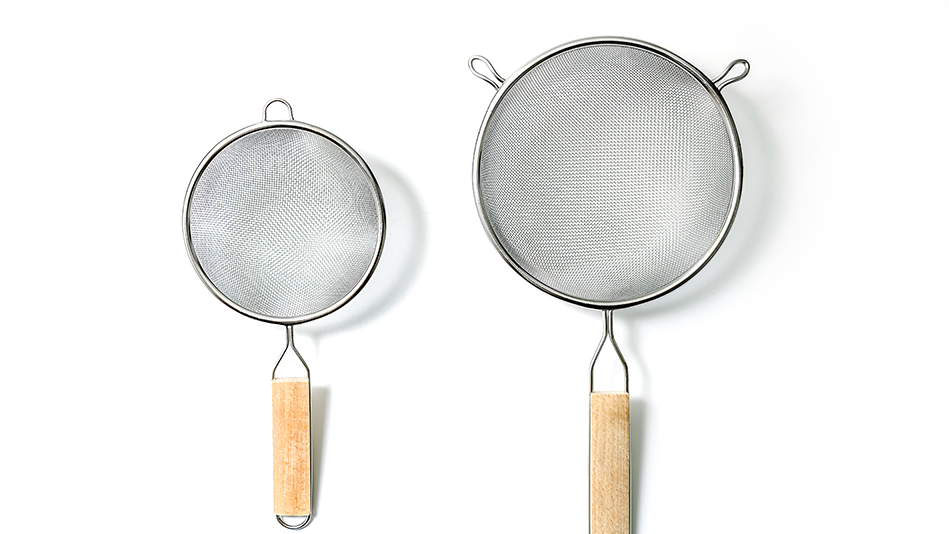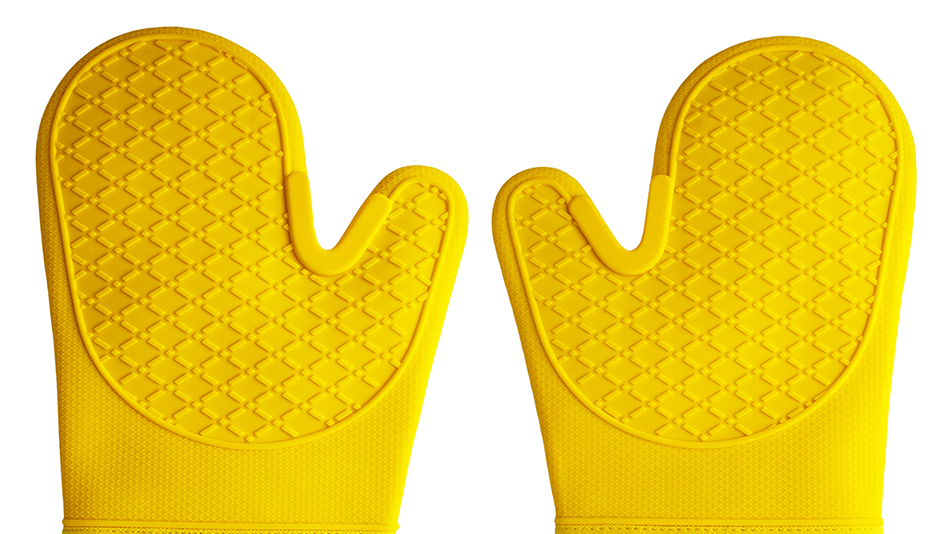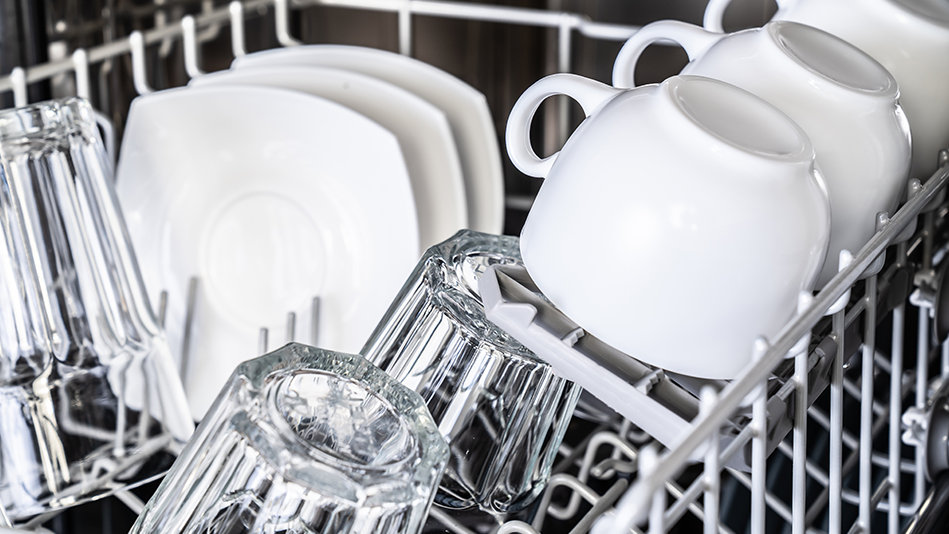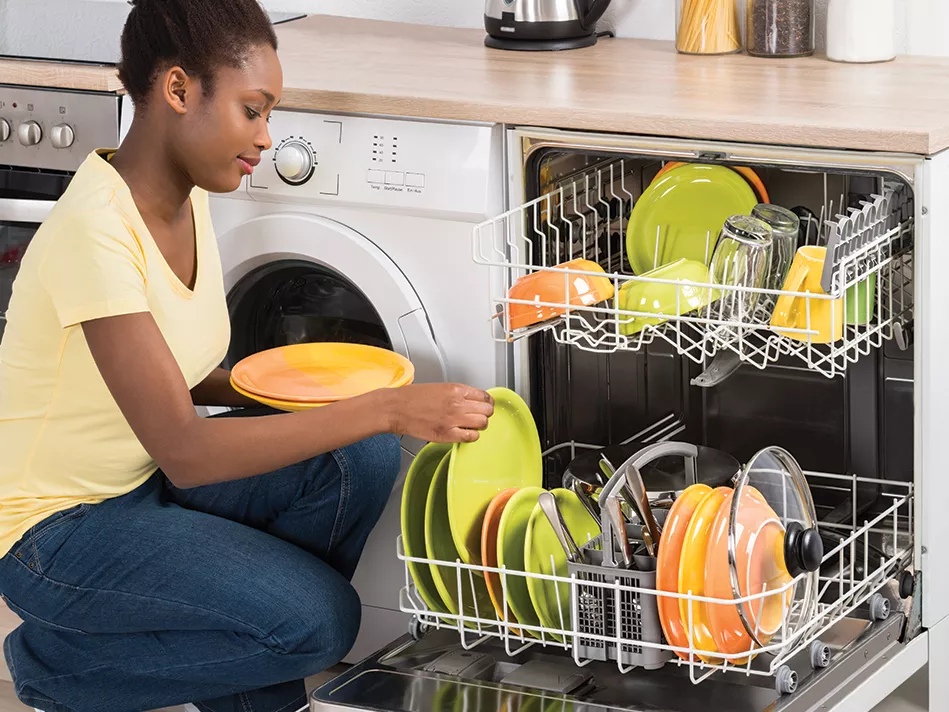Loading the dishwasher may not be your favorite chore, but this simple appliance can save you lots of time at the kitchen sink. Use this guide to learn what can actually be cleaned in the dishwasher to give yourself more dish-free days while keeping your plates, pans, and a few unexpected items in good condition!
Don’t put these items in the dishwasher
We’ve all taken a risk with what we consider “dishwasher safe”, but certain items can really impact your dishwasher’s ability to perform over time. Play it safe—keep kitchen tools made of these materials on your Hand Wash Only list.
Keep your cast iron and wood out
When cared for properly, cast iron cookware can last for ages. Unfortunately, dishwasher detergent can remove the oil coating, meaning you’ll have to season it after every wash. Prolonged exposure to water can also cause rust, which shortens the life of your iron cookware. Give your cast iron items a chance—leave them out of the dishwasher so you can keep them in your family for generations to come.
Wooden items are also easily stripped of their natural oils in a dishwasher, causing them to dry out. Wash your cutting boards and spoons by hand to prevent this problem.
Make sure your glass stays gorgeous
Glass is typically dishwasher safe, but painted and printed glassware can get chipped and scratched in just a few washes. Maintain the markings on your measuring cups and the designs on your drinking glasses—cleaning these with mild dish soap and warm water is often your best bet.
Save your ceramic and copper
Handwashing your ceramic and copper pieces helps you avoid a dulled finish. Your copper cups and pans will also be less susceptible to pitting, and the corrosion that can happen during a dishwashing cycle.

Send sieves to the sink
Your sieves and graters have dozens of small holes. Running them through a cycle does not guarantee that each one will be cleaned effectively. For best results, wash both items in the sink (especially graters, since they can also scratch up your dishwasher racks, creating an opening for rust to develop).
No nonstick in the dishwasher (unless you air dry)
Many homeowners regularly wash nonstick pans in the dishwasher. This can lead to chips, scratches, or flakes—all of which can cause toxins to leak into your food. If you notice any of these signs of damage, send that pan or pot to the trash immediately!
Give your nonstick cookware their longest life with a hand wash and an air or towel dry. If you must send your nonstick pots and pans through the dishwasher, let them air dry to help them last longer.
Melamine? Maybe not
Melamine and acrylic plates are known for their beautiful designs and popular cartoon characters. To preserve these prints and prevent cracks and fading, wash these plates by hand.
Can you believe it? These items are dishwasher safe!
If you’ve ever been the daredevil who machine washes random kitchen items and hopes for the best, you’re in luck— these are all considered to be dishwasher compatible!
- Silicone items, like trivets, oven mitts, and baking mats
- Refrigerator bins and shelving
- Plastic utensil holders
- Drawer organizers
- Kitchen brushes and sponges (in the utensil holder)
Pro Tip: Always refer to your owner’s manual and/or any packaging labels for your kitchen items to determine if they are dishwasher compatible.

Give your dishwasher a long life–follow these practices for best use
Putting the right items in your dishwasher is a great start, but there’s more to this sudsy story. Extend the life of your machine with these easy-to-remember dishwasher tips
The best way to load a dishwasher
Dishwashers may vary in shape and size, but the general design is the same (top rack, bottom rack, utensil holder). By loading the dishwasher the right way, you can maximize your chances of everything coming out in the wash.
- After removing large food bits, skip the pre-dishwasher rinse so detergent has something to cling to.
- Load your dishwasher from back to front.
- Put butter knives in handles down (sharp knives will dull), and alternate forks and spoons heads up!
- Make sure your cups are loaded face-down.
- Bowls can go on either rack, so long as you point their dirtiest surfaces downward for the brightest clean.
- Make sure the spray arms can move fully before starting a load, and limit large items to the racks’ edges.
- Bonus: Unload your dishwasher bottom to top, so you don’t drip any water on your dry plates.

The best dishwasher soap for you
The type and amount of soap you use plays a big factor in how clean your dishes will get. What is the best dishwasher soap for your machine and household? Use these factors to find out.
- Before switching detergents, load the dishwasher using the recommendations above and see if it yields a better clean.
- Compare costs: Powders and liquids are more affordable, but it’s easier to use too much per cycle.
- Use less detergent than you think you’ll need, especially if you notice the look, smell, or taste of residue.
- If you have a fragrance sensitivity or don’t want a lingering smell, unscented options are available.
- Rinse aid may be the missing piece for spotless, perfectly washed dishes.
The easiest way to clean your dishwasher
For all the loads your dishwasher runs, don’t forget to show it some TLC! How often should you clean your dishwasher? A little maintenance every 1-2 months should do the trick. Watch this video to for a quick guide on keeping your dishwasher in great condition for loads to come.
Now that the dishwasher score has been settled, you can run your next load with confidence. If all this talk has got you in a cleaning mood, make sure your other kitchen features are at their best with our guide on routine kitchen appliance maintenance.
Visit us on Facebook, LinkedIn, Twitter or Instagram to tell us your thoughts!

